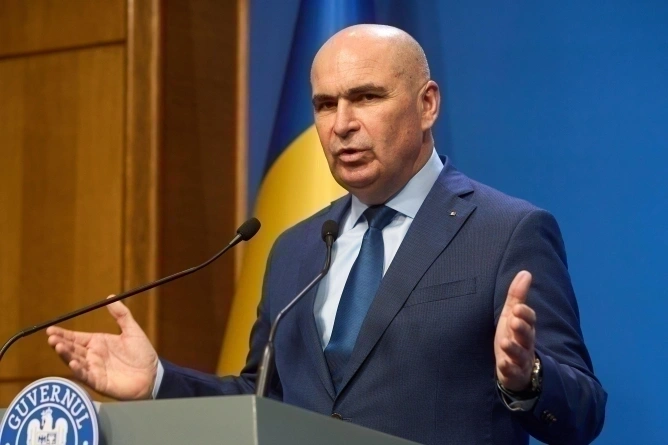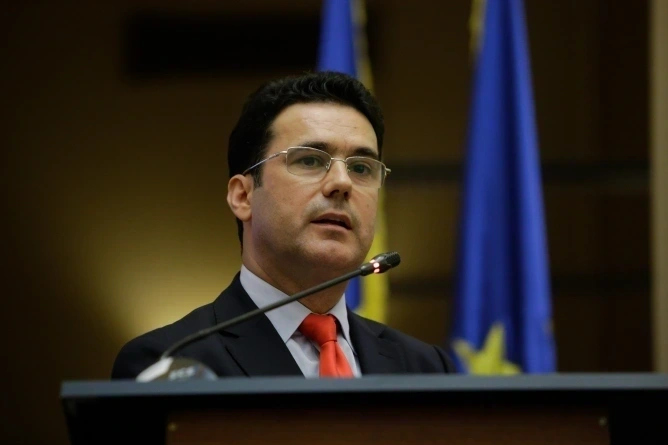
In the next 10–15 years, there was talk – more informally – about Russia's plan to infiltrate Romanian and European politics and media. At that time, there were even names of politicians, analysts, and journalists who were said to be "supported" by the Kremlin. With the exception of a few university professors and researchers who signaled this in specialized publications, no one else considered that this subject truly represented a danger, but rather a cheap game by Russia, which would have no real consequences for democratic countries.
Today we can say, without the risk of being wrong, that there is no parliament in Europe from whose tribune there is not at least one "representative" of the Kremlin, disguised as a national or European politician.
Obviously, these politicians shy away from this "title," but they immediately reveal themselves through their reactions to sensitive topics for Moscow: Russian drones that illegally penetrate the territory of other states (Poland, Romania, Moldova, etc.), through political speeches, through the way they vote on issues related to regional geopolitics, through narratives and through directives transmitted in more or less visible ways. This network of politicians, built over time and financially supported both openly and in secret – just as Dmitri Medvedev stated in an interview some time ago – has managed to put fundamental issues for our security under question: support for Ukraine, NATO membership, the legitimacy of the European Union, or the energy security of the continent.
Ten to fifteen years ago, the secret services and the prosecutor's office in Romania and in Euro-Atlantic countries did not speak publicly on this subject. In recent years, in an unusual manner, we have hundreds of public reports from the secret services and investigations from the prosecutor's offices that address extremely serious crimes, namely treason and attacks on national security.
The main "gates" through which Russia has entered national and European politics are: (i) political parties, (ii) the media, and (iii) social networks. Each deserves a distinct analysis. I will start today with political parties.
To understand the phenomenon, we must start from the classic role of political parties. For over two centuries, parties have been the backbone of modern democracies. They shape ideologies, build programs, and mediate the relationship between the state and citizens. Liberalism, conservatism, social democracy, or Christian democracy are not mere relics from textbooks, but continue today to define the political life of Europe. However, these classic parties have been constantly subjected to a process of erosion, of losing credibility, for various and complex reasons.
Against this backdrop, in recent decades, new political "currents" have entered the arena, but two, in particular, have attacked the very foundation of political competition: on one hand, we have populism, and on the other hand, what we can call without hesitation "KGB Parties".
Populism: the voice that believes in nothing
The communication revolution has transformed politics into a permanent spectacle. Social networks have replaced debate with instant reaction, with slogans and emotion. In this space, populism has flourished. Unlike classic parties, populist parties do not claim a stable ideology. They do not have a coherent vision of the world, but only reflect the frustrations of the moment.
Populists believe in nothing. Today they preach "national independence," tomorrow they seek obscure funding. Today they wave the flag of "traditional values," tomorrow they negotiate behind closed doors "the reopening of mines." Populism is a technique for capturing discontent, not an ideology. And that is precisely why it has massively weakened classic political systems and prepared the ground for the infiltration of other malevolent "players".
"KGB Parties": an old method, with new means
This is not the first time Moscow has used this type of instrument. In the interwar period, the Comintern infiltrated parties and unions throughout Europe to destabilize democratic regimes. After the war, the communist parties in Western Europe – especially in France and Italy – became, legally and democratically, the fifth column of the Kremlin.
The Italian Communist Party (PCI), led by Palmiro Togliatti, obtained almost 19% in the 1946 elections and rose to 31% in 1948, in alliance with the socialists. The French Communist Party (PCF), led by Maurice Thorez, was the first party in France after the war: 26% in 1945, 28.6% in 1946. In Finland, the communists reached 23%, in Belgium 13%, in the Netherlands and Norway over 10%. In many of these countries, the communists were very close to entering government.
For years, the leaders of these parties denied their dependence on Moscow. But after the fall of communism, declassified documents clearly showed: the PCI, PCF, and other similar parties were massively funded by the Kremlin, ideologically coordinated, and logistically supported. They were parties in name only. In reality, they were KGB operations, under the cover (the appearance of legality) of political organizations.
Today, the method is the same, only the instruments have changed. Russia no longer needs to buy entire newspapers or send suitcases of money to party leaders. Now it has social networks, media channels, and sophisticated financial mechanisms that make influence direct, immediate, and hard to control. If the Italian Communist Party and the French Communist Party were once puppets of Moscow in the West, today the same function is taken over by the new "sovereignist" parties, which mimic national ideology but serve the interests of the Kremlin.
Contemporary examples
Romania is not spared. AUR presents itself as the "party of patriots," but recycles legionary discourses, contests NATO and the EU, and spreads conspiracy theories identical to those disseminated by Russian propaganda. Leaders like Călin Georgescu have publicly glorified the Legionary Movement and presented Romania's isolation as a "national alternative." In reality, all these messages only serve to sabotage the Euro-Atlantic direction of the country.
In the Republic of Moldova, the Șor Party was banned after it was demonstrated that it received money from Russia to organize paid protests. It was no longer about political opinions, but about illegal subversive operations.
In Germany, AfD has been accused of connections with Russian money and propaganda, while calling for the cessation of support for Ukraine. In France, nationalist formations have taken loans from Russian banks. In Italy, political leaders have been seen with representatives of the Kremlin. In the United Kingdom, the campaign for BREXIT was fueled by coordinated disinformation networks, including from Russia. And today we see how the connections manifest openly: leaders of radical parties from Eastern Europe, such as George Simion, participate in extremist rallies in London, providing a clear picture of how the "network" supports each other across borders, under everyone's eyes.
Nothing is new. Only the means have been perfected.
Freedom of opinion and the red line
In a democracy, everyone has the right to believe what they want. Anyone can say that Putin is "good" or that the European Union is "bad." Freedom of thought and expression is the foundation we defend.
But when these beliefs become instruments of manipulation, when they are supported by illegal funding and coordinated campaigns by foreign powers, we are no longer talking about opinion. We enter another area: subversion, destabilization, national treason. "KGB Parties" are not parties of ideas, but structures of political sabotage.
What needs to be done?
We cannot remain spectators. To say that "this is democracy" and to tolerate parties that break the law means, in fact, to give up democracy. Freedom of opinion does not mean the freedom to receive money from Moscow, to glorify fascist symbols, or to organize paid protests. When you cross this line, you are no longer a political opponent, but an agent of a foreign power.
We have hundreds of public examples in Romania in recent years: rallies with obscure funding, direct attacks against NATO and the EU, declarations glorifying Putin, along with those sabotaging the country's military defense mechanisms. All these are violations of the law, if the financial circuits behind this complex system of pro-Putin and anti-NATO/EU propaganda are identified. In the face of them, the state cannot shrug its shoulders.
Institutions do not need new laws, but the courage to apply the already existing legal provisions. We have legislation against extremism, a Penal Code, financial control institutions. What are we missing? Political will? When CNA is silent, television stations become mouthpieces for the Kremlin. When the Permanent Electoral Authority turns a blind eye, dirty money becomes "donations." When Parliament relativizes the past, through unclear or incomplete laws, fascism becomes "opinion."
When will classic political parties understand that they must not legitimize "KGB Parties"? If they do not name the phenomenon and do not firmly delineate themselves, they assume complicity through silence. AUR, SOS, POT, and leaders like Călin Georgescu are not mere "alternatives" of Romanian politics, but pawns of a hostile strategy, directly instrumentalized "sovereigns" from the Kremlin.
The political battle is no longer a classic one, of the "left-right" type. It is about choosing between democracy and subversion, between the rule of law and anarchy directed from abroad, between patriotism and treason.
Tolerating these "KGB Parties" means accepting to play on Moscow's turf. Naming them, sanctioning them, and, when the evidence requires it, banning them – that means defending democracy.
We must not confuse freedom with weakness. Democracy does not defend itself.
That is why, in this context, in which Russia tries, by any means, to suspend democracy in Romania, the actions of the General Prosecutor's Office to decipher the illegal mechanisms of hybrid attack, through election fraud, with the help of people and political parties, represent an absolutely legal endeavor to defend the Romanian State, which we, the citizens, must appreciate as such.
Obviously, Russia did not work in Romania only with Călin Georgescu. The list of those "willing" to destroy the country is much longer. Therefore, I expect that the numerous illegal actions, some of them already publicly signaled, targeting mainly the funding mechanisms of "sovereignist" parties, will also be analyzed swiftly by the competent institutions. A political party cannot be an instrument of a foreign power. A political party, by definition, is and must remain an institution strictly in the service of Romanian citizens and nothing more. All those who do not understand and do not respect this minimal requirement of a democracy must be confronted with the demands of the law.

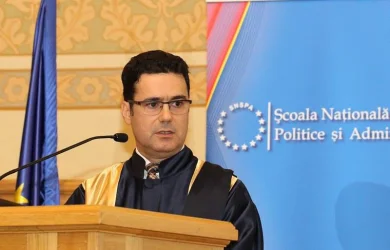

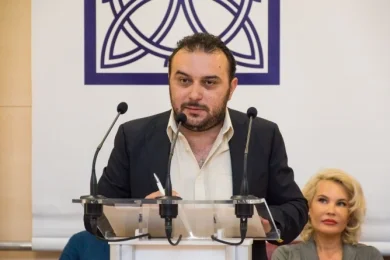

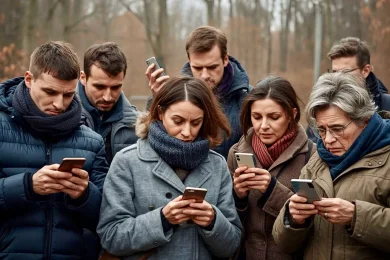
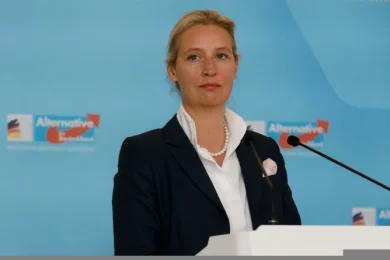

.webp)


